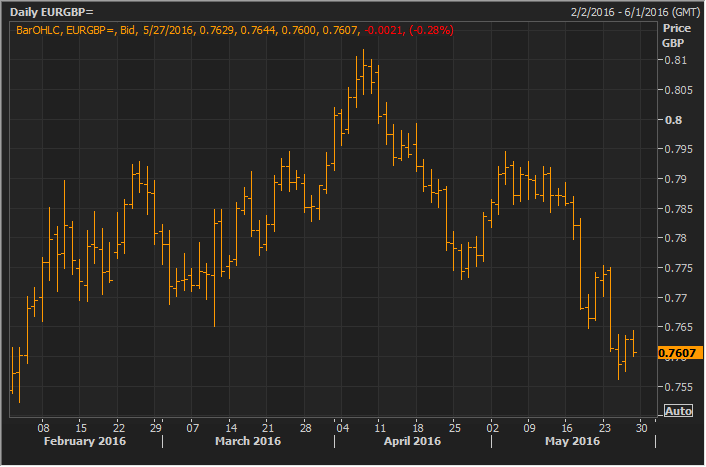
Pound Starts to Discount Bremain While Markets Put Yen Question to BoJ, Abe
Pound Starts to Discount Bremain While Markets Put Yen Question to BoJ, Abe
The British Pound the Day After
The British pound has been putting in a strong performance over the past few trading sessions, as it has pushed to a 3-week high versus the US dollar (above 1.4730) while pressuring euro / pound to a near 4-month low of 0.7564. This was the lowest point since before the date of the referendum on EU membership was decided earlier this year, on 20 February.
It is obvious that the main factor pushing sterling higher is the publication of polls that are showing increased support for the UK to remain a member of the EU. The polls have certainly been leaning this way and they now show a commanding lead for the ‘remain’ camp. Nevertheless, the odd poll does come out that challenges this belief and this is sowing some confusion among market participants. Bookmakers on the other hand have been showing that odds of the ‘remain’ camp winning are now at 80%. One could say that euro / pound is also pointing to a ‘remain’ victory by trading at its lowest since when the actual referendum date was announced.
Of course popular votes do carry with them a certain degree of uncertainty, which is usually only finally resolved the day following the vote. Assuming that ‘remain’ does win, the day after the referendum will bring with it an important question for markets. Mainly, was some weakness observed in UK economic statistics just transitory and a result of the referendum uncertainty or something more permanent that will prevent the Bank of England from raising rates for the foreseeable future? This uncertainty will of course weigh on the pound less than the referendum did, but it might also take its time to be resolved. Therefore, it will be interesting how sustainable a rally in the pound will be, in the absence of data showing a stronger economy.
The Fight for a Weaker Yen
The yen has also become a center of attention as the top-performing currency of the year so far. This has of course become a problem for Japan; both the Bank of Japan who would like to see a weaker yen in order to push inflation higher and the government who is expecting growth from Japan’s exporters. Achieving a weaker yen has become a more tricky affair however. The Bank of Japan’s experimentation with negative interest rates back in January failed to bring about the expected weakening (as did the ECB’s additional stimulus measures in March failed to weaken the euro by the way). The Japanese government is also facing problems in its effort to at least have currency intervention available as a possible weapon. It appears that Japan’s other G7 partners – particularly the United States but also others- are against giving Japan their ‘blessings’ for such an operation – at least at this stage. This has been a yen positive and has contributed to driving dollar / yen below 110.
In terms of data however, Japanese inflation was objectively quite weak, despite the fact it was more or less mixed compared to expectations. Overall the data, with one or two exceptions, has not been upbeat and it will be interesting to see if the Bank of Japan will decide to ramp up stimulus when it meets in around 3 weeks’ time. Therefore, upcoming data releases about Japan as well as the Bank of Japan meeting and intervention talk, could cause some sharp swings in the yen. Interestingly, the yen’s role as a safe haven has not been as prevalent recently, but this could change if equities break out in a particular direction.



